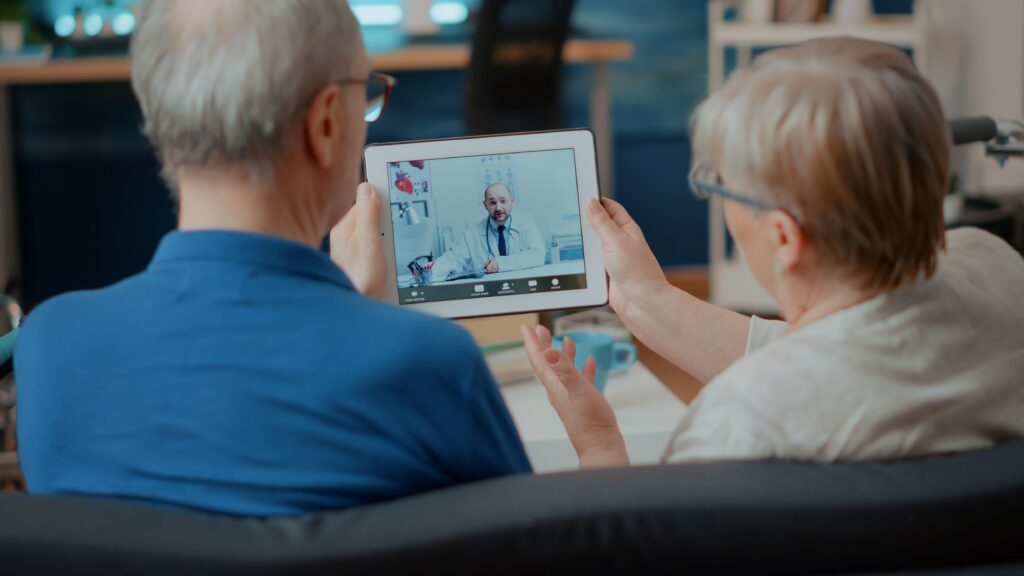The landscape of healthcare is undergoing a remarkable transformation, driven by the integration of technology into patient care.
Virtual health services, powered by at-home technology such as wearable devices, smartwatches, and mobile apps, are revolutionizing the way we access and receive medical care. This innovative approach is not only making healthcare more convenient and accessible but also enhancing the quality of care delivered to patients across the globe.
Virtual health services encompass a wide range of healthcare activities that leverage technology to provide medical care remotely. From virtual consultations with doctors to real-time health monitoring, this approach is breaking down geographical barriers and bringing healthcare right into the comfort of our homes.
Telemedicine, a subset of virtual health services, has gained immense popularity, especially in recent times. Through secure video calls and messaging platforms, patients can consult with healthcare professionals without the need to travel to a clinic. This has proven particularly valuable in rural or underserved areas, where access to medical facilities is limited.
Monitoring in Real Time
Wearable devices and smartwatches have emerged as essential tools in the realm of at-home healthcare technology. These devices are equipped with sensors that can track vital signs, physical activity, sleep patterns, and even detect potential health issues. The data collected by these wearables can be seamlessly transmitted to healthcare providers, enabling them to monitor patients’ health remotely and intervene as needed.
For instance, individuals with chronic conditions like diabetes or heart disease can benefit immensely from continuous monitoring. Wearable devices can track blood glucose levels, heart rate, and activity levels, providing doctors with valuable insights into their patients’ health status. In case of any anomalies, medical professionals can promptly adjust treatment plans or provide timely guidance, minimizing the risk of complications.
Empowering Patients Through Apps
Mobile apps have emerged as a powerful tool in empowering patients to actively manage their health. These apps offer a wide array of functionalities, from medication reminders and symptom tracking to personalized workout plans and mental health support.
For instance, mental health apps provide users with access to counseling and coping strategies, breaking down the stigma associated with seeking mental health support. Additionally, apps designed for chronic disease management enable patients to track their symptoms, adhere to medication schedules, and communicate with their healthcare teams in real-time.
Improving Healthcare Quality
The integration of at-home technology and virtual health services is not only enhancing convenience but also significantly improving the quality of care. Here’s how:
- Early Detection and Prevention: Wearable devices can identify potential health issues in their early stages, allowing for timely intervention and prevention of complications.
- Personalized Treatment: Data collected from wearable devices and apps enable healthcare providers to tailor treatment plans to individual needs, ensuring more effective outcomes.
- Continuity of Care: Virtual health services facilitate seamless communication between patients and healthcare professionals, ensuring continuous monitoring and support even after an in-person visit.
- Patient Engagement: Apps and wearable devices encourage patients to take an active role in their healthcare journey, leading to better adherence to treatment plans and healthier lifestyle choices.
- Access to Specialists: Virtual health services enable patients to consult with specialists who might be located in different cities or countries, expanding access to expertise.
Takeaway
The fusion of virtual health services and at-home technology is reshaping the healthcare landscape, offering unprecedented convenience, accessibility, and quality of care. From wearable devices that monitor our health in real-time to mobile apps that empower us to take charge of our well-being, these innovations are propelling healthcare into a new era. As technology continues to advance, the potential for further improvements in patient care is boundless, promising a future where quality healthcare is accessible to all, regardless of geographical boundaries.








